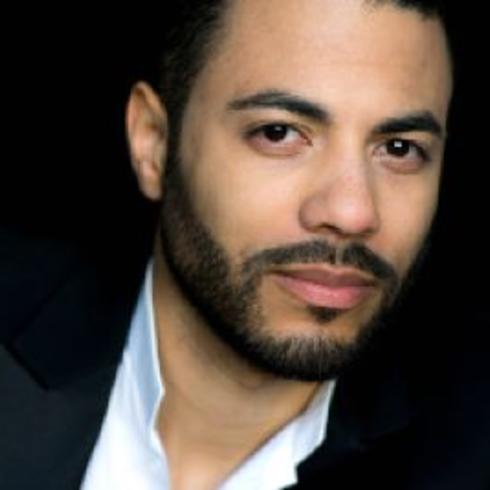
" Ahania's Lament "
For soprano and orchestra
SELECTION 2019
- Nominated for : The Musical Composition Prize 2021
“Without belief, there can be no art”
For the Canadian composer and conductor Samy Moussa, who, in the past year received the Hindemith prize from the SHMF, music is a personal expression and a bodily experience: With power and emphasis, the young Canadian organizes the iridescent colors of huge casts, with the help of which he can best reify his musical visions into concrete designs. Moussa, who, among others, studied with José Evangelista, Matthias Pintscher and Pascal Dusapin, treasures the dramatic gesture: he uses the psychic dimension of sound and wants his audience to be seized emotionally as well as to be intellectually engaged. In that this engages with the deep romantic idea of “inspiration,” it overall fits the bill: “When I compose, in order to implement my musical thoughts, I abandon myself primarily to my “knowledge,” namely, to technical and aesthetic tools,” he said. “However, these tools alone are not sufficient to write music that satisfies me. To give a composition meaning, one utilizes deeper intuition. “Knowledge” thus serves only as a method for expressing content, which hopefully goes far beyond the notes.
Although I do not think that inspiration is the origin of this content, my imagination plays an important role in lending this content form. Important for this is belief – the belief in an idea, a design, or, more frequently, a metaphysical experience. This belief is then converted into a potential truth through always ongoing thought processes, the goal of which is communication. Thus, it is necessary to create a link to mystery. Therefore, I recognize the transformative power of music, which takes place on two different levels: on the ontological and creative levels, and on the level of reception. As an artist who thinks this way, it’s impossible for me to be a nihilist in my work and in my life. Without belief, there can be no art, at least not in the way I believe it to be.”
That a composer such as Moussa is predestined to engage with the prophetic texts of William Blake is obvious. Because the English poet and natural mystic trusted the force of fantasy and the dominance of emotion, which is reflected, among other things, in his epic poem “The Book of Ahania” from 1795. In it, Blake explains with allegorical intent how Fuzon, “the first begotten, last-born son” of Urizen rose against the Father and, as an embodiment of passion, took the field against reason and convention (Urizen). In this mythical allegory, Blake transformed the biblical story of the freeing of Israel from Egyptian captivity until the achievement of the Decalogue and the Crucifixion in his own cosmology. The conclusion of the poem portrays the complaint of Ahania (of sensual and spiritual pleasure) about the separation from his one-time beloved Urizen. In its image intensity and melodics, reminiscent of the “Song of Songs,” this passage belongs among the most poetical passages from Blake’s “Prophetic books.”

